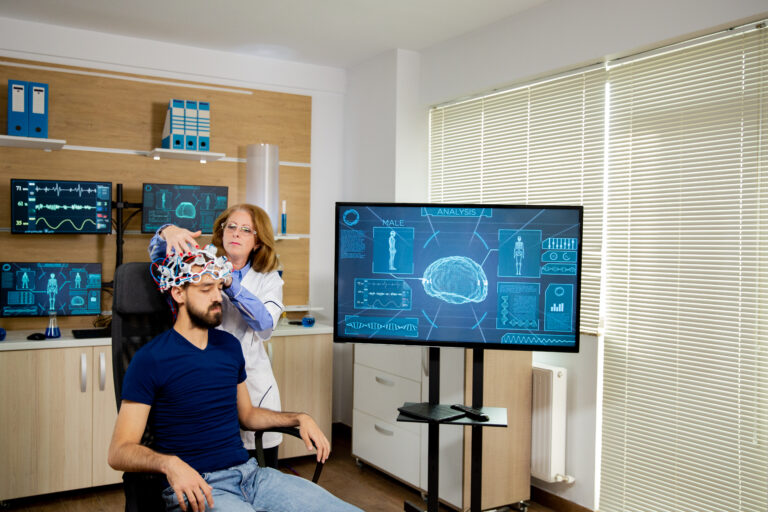The Future of Medical Billing in the AI Era: Why Human Expertise Still Matters
Artificial Intelligence (AI) is transforming every corner of healthcare — from diagnostics and treatment planning to scheduling and patient communication. In the world of healthcare administration, AI is now deeply integrated into Electronic Health Records (EHR) systems and Practice Management Software (PMS), promising automation, speed, and accuracy in tasks that once took hours of manual effort.
With these advancements, a common question arises:
Will AI replace medical billing work entirely?
The short answer: No.
The longer answer: AI will transform medical billing, but human expertise will remain indispensable — just in a different way.
1. AI Will Automate the Repetitive, Not the Complex
Modern EHR and PMS platforms already use AI to handle tasks such as:
Automatic claim form population
Real-time eligibility verification
Suggesting CPT/ICD-10 codes based on documentation
Sending follow-up reminders to payers on unpaid claims
Generating performance and payment reports
While these functions save time and reduce clerical errors, they are primarily rules-based and repetitive. Billing, however, is not always a straightforward process.
Consider:
A payer denies a claim citing a vague “lack of medical necessity”
An insurance contract includes obscure clauses affecting reimbursement
A coding rule changes mid-year, requiring nuanced interpretation
These are situations where AI cannot replace the experience, judgment, and negotiation skills of a trained billing professional.
2. Complex Problem-Solving Still Requires Humans
AI excels at identifying patterns, but it struggles with exceptions — and exceptions are common in medical billing.
Experienced billers are skilled at:
Appeals & Denial Management – Writing effective appeal letters and gathering supporting evidence
Contract Negotiations – Addressing underpayments with payers based on contractual terms
Handling Special Cases – Addressing coordination of benefits, worker’s comp, or motor vehicle accident claims
Understanding Context – Recognizing when a diagnosis supports a higher-level code
Without human intervention, many of these claims would remain unpaid, leading to lost revenue for practices.
3. Compliance & Legal Responsibility Can’t Be Automated Away
AI can help flag potential HIPAA violations, but the legal and ethical responsibility for compliance falls on healthcare providers and billing professionals.
Some compliance scenarios require judgment calls, not just rules:
Deciding if documentation supports a particular modifier
Determining whether to rebill or appeal a denied claim
Handling ambiguous payer guidelines
A machine can offer suggestions, but only a human can take responsibility for ensuring the claim meets regulatory and contractual requirements.
4. The Biller’s Role Will Shift — From “Doer” to “Manager”
Rather than manually keying in every claim, the billing role is evolving into AI oversight and revenue strategy.
This means billers will:
Validate AI-generated work for accuracy before submission
Monitor payment trends and identify anomalies AI might overlook
Train AI systems by flagging incorrect suggestions for continuous improvement
Focus on revenue optimization instead of just claims processing
In short, AI is becoming the assistant, and the biller is becoming the strategic decision-maker.
5. Practices Still Need Revenue Cycle Expertise
Even with AI-powered systems, practices will still face:
Changing payer policies
State-by-state compliance variations
Complex reimbursement structures for specialties
The need for cash flow optimization
AI can process information, but it cannot advocate for a provider’s financial health the way a revenue cycle expert can.
Outsourced billing companies like Right Medical Billing remain crucial — not just for entering claims, but for maximizing revenue, reducing denials, and improving compliance in an AI-driven environment.
6. The Winning Approach: AI + Human Expertise
The real future of medical billing is collaboration between AI tools and skilled professionals:
AI will handle speed, data accuracy, and repetitive processing
Humans will handle interpretation, negotiation, and strategic decision-making
By blending automation with human insight, practices can achieve:
Faster Payments – AI accelerates processing, humans ensure approvals stick
Fewer Denials – AI flags issues early, humans resolve complex cases
Better Compliance – AI checks rules, humans ensure ethical alignment
Higher Revenue – AI runs reports, humans turn data into actionable strategies
Final Word
AI in EHR and PMS systems is not the end of medical billing — it’s the beginning of a smarter, more strategic era.
Medical billers who adapt to AI tools will move away from repetitive work and focus on high-value revenue cycle management.
For providers, this means you don’t have to choose between technology and expertise — the future belongs to practices that embrace both.
At Right Medical Billing, we combine the efficiency of AI with the experience of certified billing professionals to help you get paid faster, stay compliant, and maximize revenue in the new healthcare landscape.



